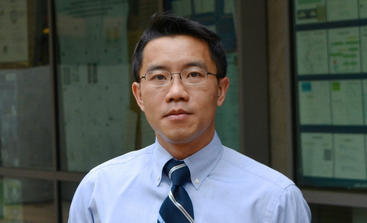
UC Riverside engineers will soon be using supercomputers and machine learning to control the behavior of materials with light. The project, a collaboration with Lawrence Berkeley National Laboratory, or LBNL, has received a $4 million grant from the Department of Energy to use high-performance exascale computing to control material systems with light.
Controlling the motion of electrons at the quantum level can enhance the performance of next-generation electronic materials and devices. Unlike batteries and generators that use chemical or mechanical approaches to move electrons over large distances, light can be harnessed to do this at the quantum level.
Electrons move around when photons, or particles of light, bump into them, “exciting” them into motion. Scientists have been able to control the movement of electrons, known as electron transfer, on a macroscopic level for a long time. Controlling electrons using light, however, is more of a mystery.
Bryan Wong, a professor of materials science and engineering in UC Riverside’s Marlan and Rosemary Bourns College of Engineering, leads the effort to predict optical, or light-driven, electron excitations to optimize charge and energy transfer in complex materials. The work could have far-ranging results in various energy-centric fields, including ultrafast spectroscopy, photochemistry, molecular electronics, photocatalysis, and surface spectroscopic techniques.
“Nearly all chemical, material, and biological processes occur out of equilibrium, and understanding how these systems can be controlled with light can enable numerous technologies such as solar materials, sensors, and light-harvesting nanomaterials,” Wong said.
The research team will build tailored laser pulses and use machine learning, quantum calculations, and exascale computing to predict how these pulses lead to optimal energy transfer in large, complex materials. Exascale computing refers to a quintillion (1018) calculations each second. The fastest supercomputers in the world today solve problems at the petascale—that is a quadrillion (1015) calculations each second.
“Harnessing quantum calculations, advanced machine learning, and supercomputing brings a new, unique capability for controlling the behavior of light-harvesting and next-generation electronic materials,” Wong said.
Joining Wong on the project are UC Riverside computer science professors Christian Shelton, who specializes in artificial intelligence, and Zizhong Chen, an expert on high performance computing and big data analytics, as well as Khaled Ibrahim and Mauro Del Ben at LBNL.




